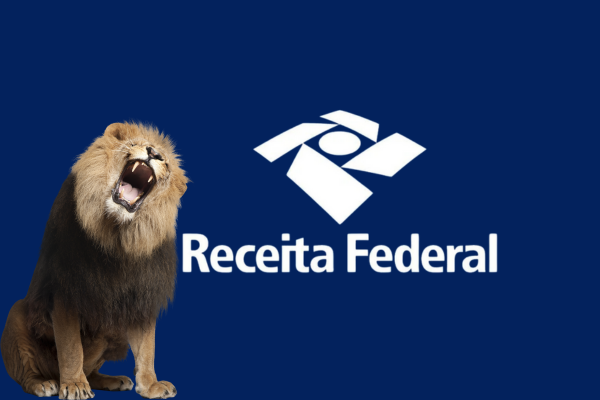Effective Strategies for Saving Money in Times of Crisis
More than 341,600 companies closed in Brazil in three years, according to the IBGE. This shows the importance of saving and managing money well in difficult times. Saving money is crucial in times of crisis, and following savings tips can make a big difference to a family budget.
With low income and an uncertain future, it is essential to have a plan to cut expenses. This involves making a budget, seeing where you can spend less, and finding ways to save money. For example, reducing fixed expenses and making better use of available resources.
A well-designed financial plan is essential. It should include goals, objectives, and action plans. It is also important to take care of cash flow and diversify sources of income. With these strategies, it is possible to face financial crises and maintain financial stability, even in times of uncertainty.
How to Maximize Your Savings in Times of Crisis: Strategies That Work
In times of crisis, it is essential to have a plan in place. maximize your savings. First, identify what is necessary and what is not. Then, make an emergency budget and set achievable financial goals. These Strategies to save money help to reduce expenses and increase income.
Freelancers with an emergency fund have 30 to 50% more financial stability in a crisis. Cutting expenses can save up to 25% in your monthly budget with the right strategies.
Identifying Essential and Non-Essential Expenses
For an effective budget, it is crucial to know what is essential and what is not. Essential expenses are such as housing, food and healthcare. Non-essential expenses are entertainment and leisure.
Creating an Emergency Budget
An emergency budget should cover essential expenses in a crisis. This includes housing, food, healthcare, and a contingency fund.
Setting Realistic Financial Goals
Setting realistic financial goals helps you achieve stability. This involves reducing expenses, increasing income, and building a savings fund. With these strategies, you can maximize your savings and remain financially stable in crises.
- Identify essential and non-essential expenses
- Create an emergency budget
- Set realistic financial goals
- Reduce expenses and increase income
- Create an emergency fund
| Strategy | Benefit |
|---|---|
| Identify essential and non-essential expenses | Reduce expenses and increase income |
| Create an emergency budget | Covering essential expenses during a time of crisis |
| Set realistic financial goals | Achieving financial stability |
Smart Management of Household Finances
In times of crisis, it is crucial to have a financial management in difficult times. This involves making a budget, cutting expenses, and increasing income. About 40% of people do not track their expenses, which can cause financial problems.
For a effective financial management, it is important to track daily expenses. Using spreadsheets or finance apps helps a lot. It is also essential to have achievable financial goals and work towards them. For more Personal savings tips, you can seek help from experts or use online resources.
Some tips for effective financial management include:
- Create an emergency fund to cover basic expenses for a period of 3 to 6 months
- Reduce debt to avoid financial suffocation
- Diversify investments to reduce vulnerabilities and risk exposure
In short, managing your household finances well is essential to overcoming financial crises. With a well-thought-out plan and discipline, you can maintain financial stability and achieve your goals.
| Expense Type | Budget Percentage |
|---|---|
| Essential Expenses | 50% |
| Savings or Investments | 15% |
| Lifestyle (Superfluous Expenses) | 35% |
Saving Alternatives for Everyday Life
Reducing energy and water costs is essential in times of crisis. Using LED bulbs and other energy-efficient devices helps a lot. This can make a big difference in your pocket.
Adopt Personal savings tips is crucial. Planning purchases and avoiding impulse purchases are important steps. Make a shopping list and always follow it.
Optimizing transportation costs is also a good strategy. A friend's car, public transportation or a bicycle are all viable options. Here are some: Savings alternatives that you can adopt:
- Use LED lamps
- Plan purchases
- Optimize transportation expenses
With these Strategies to save money, you can reduce expenses and improve your financial situation. Financial discipline is the key to achieving economic stability.
| Category | Expenses | Economy |
|---|---|---|
| Energy | R$ 100.00 | R$ 20.00 |
| Water | R$ 50.00 | R$ 10.00 |
| Transport | R$ 200.00 | R$ 50.00 |
Safe Investments During Periods of Instability
Invest in low risk options is essential in unstable times. Experts recommend Safe investments such as government bonds, DI funds and precious metals.
To invest well in times of crisis, Portfolio diversification is key. This means investing in different types of assets, such as stocks, bonds, and real estate funds. It is also important to choose Low-risk investment options to avoid major losses.
Some safe investment options are:
- Public securities, such as Tesouro Direto
- DI Funds
- Precious metals such as gold and silver
Maintaining a diversified portfolio helps reduce market risk. It is crucial to have a long-term vision and avoid making decisions based on emotions or short-termism.
Conclusion
With the COVID-19 pandemic, it is crucial to have savings and financial resilience strategies. In this article, we show personal savings tips to face economic crises. These tips can help you and your family stay safe.
First, it’s important to know what your essential and non-essential expenses are. Creating an emergency budget and setting realistic financial goals are also important steps. These actions help save money and prepare for adversity.
Additionally, optimizing your spending on energy, water, shopping, and transportation can lead to significant savings. Investing safely and diversifying your portfolio are also key strategies. They protect your assets and help you navigate unstable times.
Adopt these strategies to save money makes you more prepared for future challenges. This way, you build a more solid financial foundation.













